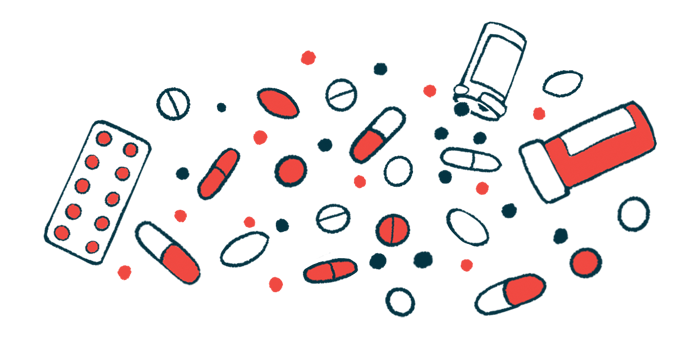NIH awards $1.9M to project to help SCD children stick to treatment
Clinical trial seeks ways to boost adherence to hydroxyurea regimen
Written by |

A $1.9-million federal grant has been awarded to a clinical trial that seeks to find effective ways to improve adherence to hydroxyurea treatment among children and young adults with sickle cell disease (SCD).
Marketed as Droxia and Siklos, hydroxyurea is an oral therapy approved to reduce the frequency of pain attacks, called vaso-occlusive crises, and the need for blood transfusions in SCD patients.
However, adherence rates among pediatric patients can be as low as 20% to 50%, resulting in high rates of emergency department visits and hospitalizations.
The Small Business Innovation Research grant from the National Institutes of Health’s National Heart, Lung, and Blood Institute was given to a collaborative project between Scene Health and the Research Institute at Nationwide Children’s Hospital.
“This project builds on the work we’re doing at Nationwide to improve the lives of children and teens living with sickle cell disease,” Susan Creary, MD, the study’s lead investigator and a pediatric hematologist at Nationwide Children’s Hospital, said in a press release. “By increasing hydroxyurea adherence, we hope we can keep children with sickle cell disease out of the hospital, improve their quality of life, and allow them to live their best life.”
Not adhering to treatments ‘a major problem’ among young SCD patients
Sebastian Seiguer, Scene Health’s CEO, said “medication non-adherence to treatments for SCD is a major problem, and we are excited to partner with Dr. Creary, an expert in pediatric SCD and adherence.”
Despite hydroxyurea’s increased use among young patients to mitigate acute SCD complications and help prevent long-term organ damage, nonadherence rates remain high, contributing to poor outcomes and higher care burden.
Previous studies have shown that better adherence to a hydroxyurea regimen is linked to better blood-related clinical parameters and to considerably lower disease-related expenses (about $12,500 vs. $22,000).
The planned trial, called ADHERE (Applying Directly observed therapy to Hydroxyurea to Realize Effectiveness), will gauge the effectiveness of Scene’s technology to improve adherence to hydroxyurea treatment.
Called video directed observed therapy, or DOT, the technology monitors, encourages, and measures medication adherence through daily video exchanges between patients/caregivers and Scene’s healthcare team.
Two previous Creary-led studies demonstrated the platform’s feasibility and acceptability, as well as preliminary efficacy in increasing hydroxyurea adherence in pediatric SCD patients.
“Dr. Creary pioneered the use of video DOT for supporting adherence to hydroxyurea in children and teens, validating the effectiveness of the ‘gold standard’ for adherence in SCD care,” Seiguer said.
By increasing hydroxyurea adherence, we hope we can keep children with sickle cell disease out of the hospital, improve their quality of life, and allow them to live their best life.
The ADHERE study will determine whether children and adolescents with SCD and their caregivers remain with the DOT platform. Participants will be recruited at Nationwide Children’s Hospital, Anne & Robert H. Lurie Children’s Hospital of Chicago, and Rhode Island Hospital’s Hasbro Children’s Hospital.
Half the participants will use the video DOT technology, undergo Scene’s MedEngagement program, and get monthly, personalized phone calls and messaging from the company’s care team.
Results are expected to inform future studies to evaluate whether this approach can translate hydroxyurea’s effectiveness from the clinic into real-world, everyday settings.
“Our partnership will lead to a robust program that optimizes and sustains adherence, giving children and young adults a chance to combat the ‘sickling’ of their cells so that they can live longer and with less pain,” Seiguer said.



